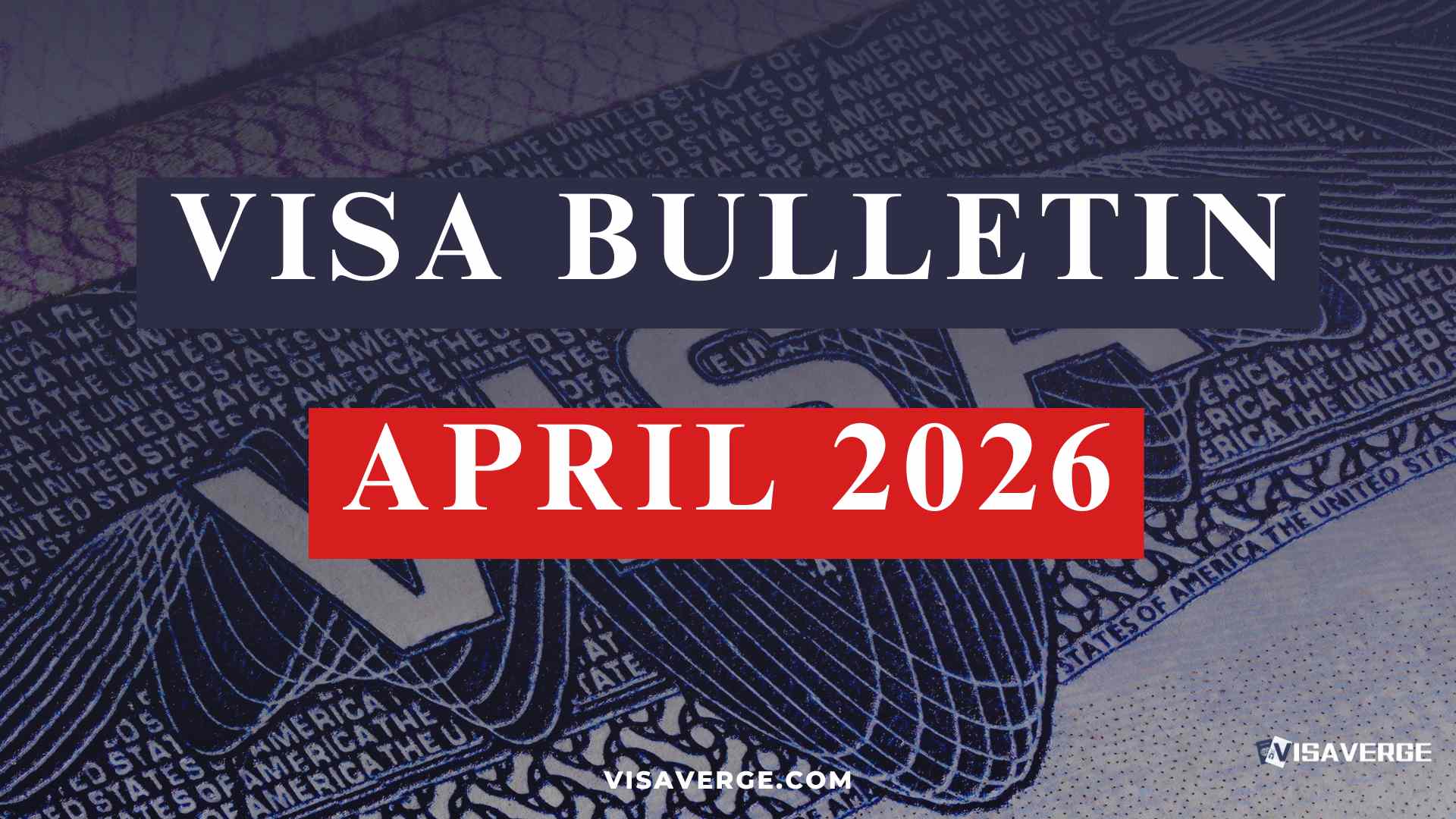Key Takeaways
- Digvijaysinh Chauhan and Hemal Patel face deportation after pleading guilty on March 12, 2025, to a $50,000 Bitcoin scam.
- Homeland Security detained both men for residing unlawfully in the U.S.; immigration proceedings started after their sentencing.
- The scam exploited Bitcoin’s pseudonymity and targeted vulnerable individuals; quick victim reports enabled law enforcement intervention.
Two men—23-year-old Digvijaysinh Chauhan and 26-year-old Hemal Patel—face deportation after playing central roles in a Bitcoin scam defrauding victims of over $50,000 in Pennsylvania 🇺🇸. On March 12, 2025, both individuals pleaded guilty to charges of felony theft and conspiracy in the Lebanon County Court of Common Pleas. Their sentencing concluded months of investigation into a complex and devastating financial racket. Soon after their convictions, federal immigration authorities took custody of Chauhan and Patel, initiating deportation proceedings while the duo remains detained.
This case reveals not only dangers posed by financial fraud but also the ripple effects on immigration enforcement and public perceptions about individuals residing in the U.S. without legal status. Below, we unpack the scam’s operation, legal outcomes, and wider societal implications to better understand its significance.

How the $50,000 Bitcoin Scam Unfolded
The fraudulent activities of Chauhan and Patel began in January 2024 and involved meticulously coordinated steps aimed at exploiting vulnerable residents in Pennsylvania, particularly those unfamiliar with digital finance tools. Their scheme revolved around deceitful messages and calls warning targeted victims about alleged threats to their bank accounts. Posing as trustworthy individuals, they tricked victims into taking extreme steps to “protect” their finances.
The critical tactics involved directing victims to withdraw thousands of dollars and handle these funds in two stages:
- Bitcoin Machine Deposits: About $24,000 was funneled through a Bitcoin machine located in Harrisburg, Pennsylvania. While Bitcoin (a digital currency) enables fast and secure transactions for legitimate users, its relative anonymity makes it an ideal tool for fraudsters aiming to conceal their financial activities.
- Cash Retention for “Safeguarding”: Victims were also instructed to retain around $30,000 in cash at home pending further steps. The scammers intended to collect this amount under the guise of securing it from digital “threats.” An accomplice was ultimately sent to retrieve the cash personally from victims’ homes.
This intricate con nearly succeeded. Fortunately, quick-thinking victims, suspicious of the scammers’ instructions, reported the incidents to local law enforcement. Authorities developed a counterstrategy, allowing victims to comply up to the point of personal cash collection. At that moment, police intercepted the vehicle involved in the scheme. Chauhan, the driver, and Patel, the passenger and vehicle owner, were apprehended immediately.
Legal Ramifications and Fast-Tracked Deportation
Following their arrests, Pennsylvania authorities swiftly charged both Chauhan and Patel with felony theft and conspiracy. The defendants pleaded guilty, acknowledging their roles in the scam and accepting court-mandated restitution orders. They refunded over $50,000 to their victims—providing some financial resolution to those affected.
The Lebanon County Court, in tandem with law enforcement agencies, expedited case processing in light of overwhelming evidence. As soon as they were sentenced, Homeland Security Investigations (HSI) intervened. Digvijaysinh Chauhan and Hemal Patel entered U.S. Immigration and Customs Enforcement (ICE) custody based on their unlawful presence in the United States.
Lebanon County District Attorney Pier Hess Graf condemned their actions, emphasizing the serious breach of trust and law involved. “To exist in this country illegally, and then to prey upon our citizens, is unconscionable,” she remarked, drawing attention to the ethical and legal implications of the case. Both men remain detained as deportation proceedings continue.
Financial Scams: A Growing Threat in a Digital World
This case adds to a growing list of financial crimes involving modern technology. Scammers increasingly rely on tools like Bitcoin machines due to their efficiency, complexity, and the difficulties associated with tracing financial flows. Bitcoin, while a legal and widely used global currency, is malleable in fraudulent schemes because of its pseudonymous properties. For this reason, policymakers and law enforcement urgently push for improved tracking and enhanced cybersecurity measures to counter tech-driven fraud.
The Chauhan-Patel scam also demonstrates the vulnerabilities of individuals who lack familiarity with digital technologies. Many victims of these schemes share certain characteristics: older age, limited tech literacy, or heavy reliance on traditional banking systems. Educating the public about these risks is crucial to preventing such crimes.
Intersection Between Immigration and Crime
The immigration aspects of Chauhan and Patel’s cases raise challenging questions. Both perpetrators were residing in the U.S. without lawful status, making their crimes even more scrutinized by policymakers. Overstays and illegal entries are matters of national concern, but mixing these with criminal charges heightens public opinion around stricter immigration policies.
Critics point to cases like these when advocating for reforms to identify and remove high-risk non-citizens. Proposals like better visa monitoring or higher enforcement mechanisms for undocumented individuals often hinge on such examples. On the other side, immigrant rights groups emphasize that undocumented status doesn’t inherently lead to criminal behavior. They warn against broad generalizations that alienate immigrants as a whole because of isolated cases, urging policymakers to distinguish between civil offenses and acts of deliberate fraud.
Nevertheless, the Chauhan-Patel case may influence future immigration policy debates, particularly regarding deportation practices for individuals involved in crimes that erode trust and public safety.
Lessons from Preparedness and Public Awareness
As the victims’ actions show, awareness and vigilance are among the best defenses against fraud. In this case, their decision to notify law enforcement turned a potentially irreparable financial loss into an opportunity for justice.
Public education can play a decisive role in fraud prevention. Efforts to teach communities about the signs of scams—such as unsolicited messages about bank accounts or demands for payment through unconventional means—are critical. Resources should also expand to focus on protecting high-risk groups, such as the elderly, from predatory schemes.
Comparing to Other Cases of Financial Fraud
The Chauhan-Patel scam is not an isolated occurrence. In February 2025, another scandal involving Indian national Nirav B. Patel brought similar attention to the scale of digital scams. In his case, a $400,000 scheme targeted elderly victims across the U.S., using fear-based tactics and impersonation to extort money. Patel, the U.S.-based coordinator for a larger global network, convinced victims to transfer savings into fraudulent accounts under the guise of preventing identity theft.
After a lengthy investigation, Patel was apprehended while attempting to collect $35,000 in person. His trial unearthed documents detailing a network that successfully coerced vulnerable populations into handing over substantial savings. This case parallels Chauhan and Hemal Patel’s in terms of its exploitation of trust, financial fear, and unfamiliarity with digital systems.
Future Outlook on Financial Fraud and Immigration
The Chauhan and Patel case serves as a wake-up call on multiple levels. Firstly, financial crimes are adapting to advancements in technology, making them ever more challenging to trace and prevent. Secondly, such cases show the dire need for effective policies surrounding undocumented individuals who engage in criminal acts, particularly in countries like the United States 🇺🇸. Finally, they call attention to the lasting emotional impact these scams have on their victims, highlighting the importance of early intervention and recovery support.
To address these trends, law enforcement and public agencies must focus on early detection, partnerships with experts on digital safety, and targeted public awareness campaigns. Digital literacy workshops, particularly for vulnerable populations, could serve as a manageable first step. Community-focused programs might also mitigate risks by helping people recognize fraud before it progresses.
Conclusion
The sentencing of Digvijaysinh Chauhan and Hemal Patel marks a decisive moment in holding financial fraudsters accountable. Both men not only orchestrated a scam that cost victims over $50,000 but also compounded legal tensions as undocumented residents in the United States. As federal agencies proceed with deportation efforts, this case emphasizes the need for stronger fraud prevention, stricter oversight of visa compliance, and public education programs to better protect citizens.
Looking forward, cases like this should guide discussions on national security, individual safety, and equitable immigration law enforcement. Moreover, they raise the urgent need for proactive measures against modern financial fraud, protecting communities from repeating the costly mistakes exposed by Chauhan and Patel’s actions. For detailed information on protecting yourself from scams, visit the Federal Trade Commission’s consumer advice page at ftc.gov/scams.
Learn Today
Deportation → The process of removing a non-citizen from a country for violating immigration laws or committing a crime.
Bitcoin Machine → A kiosk that allows users to buy or sell Bitcoin, often using cash, with limited personal identification requirements.
Felony Theft → A serious crime involving the unlawful taking of property or money, typically exceeding a specified monetary value.
Pseudonymous → A characteristic of transactions or actions where real identities are hidden but linked through unique identifiers or aliases.
Restitution → Court-ordered compensation paid by a convict to victims for financial losses caused by their criminal actions.
This Article in a Nutshell
Two undocumented men, Digvijaysinh Chauhan and Hemal Patel, masterminded a $50,000 Bitcoin scam targeting vulnerable Pennsylvanians. Posing as bank officials, they exploited fear to steal funds. Quick-thinking victims alerted authorities, leading to arrests, restitution, and deportation proceedings. This case underscores rising tech-driven fraud and the critical importance of vigilance and digital literacy.
— By VisaVerge.com
Read more:
• Azamat Baratov Sent to U.S. Over Visa Fraud Charges
• Canada’s Visa Rejection Rate Hits 61% as Fraud Cases Rise
• OPT Fraud Leaves International Students Facing Legal Battles Ahead
• Whistleblowers Accuse Tata Consultancy Services of Hiding Visa Fraud
• ED Raids Visa Firms in Punjab Over Alleged US Immigration Fraud







